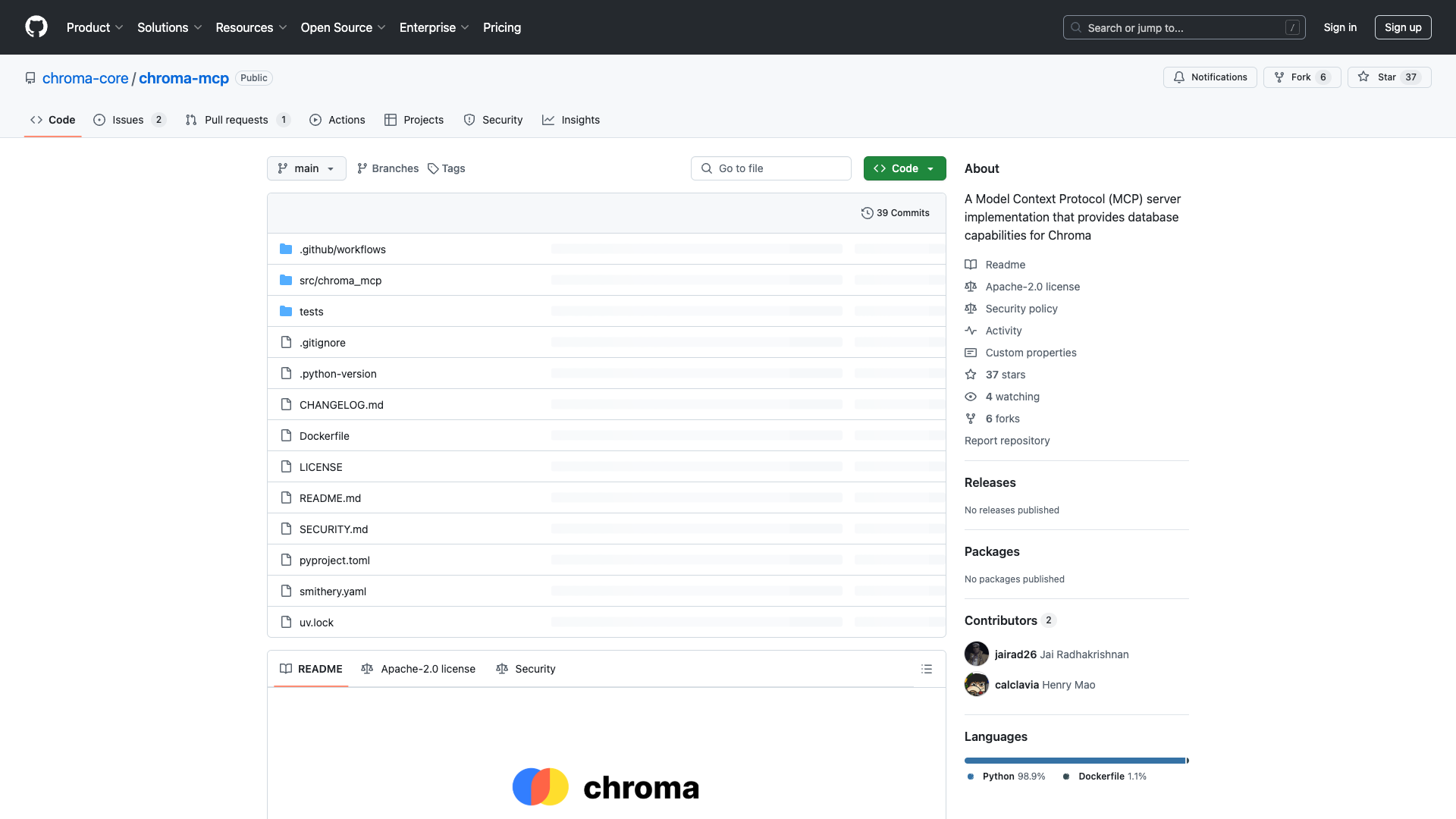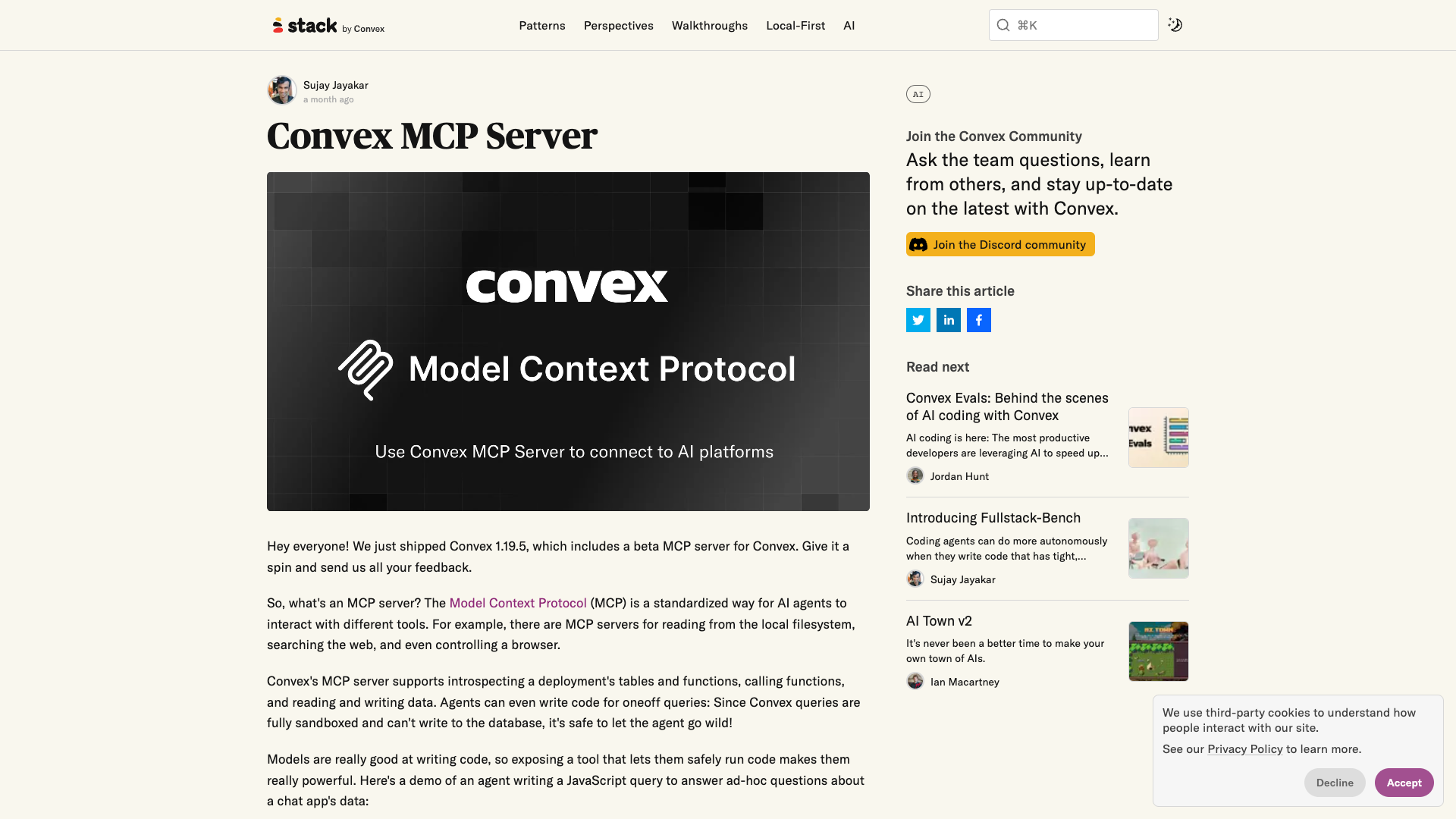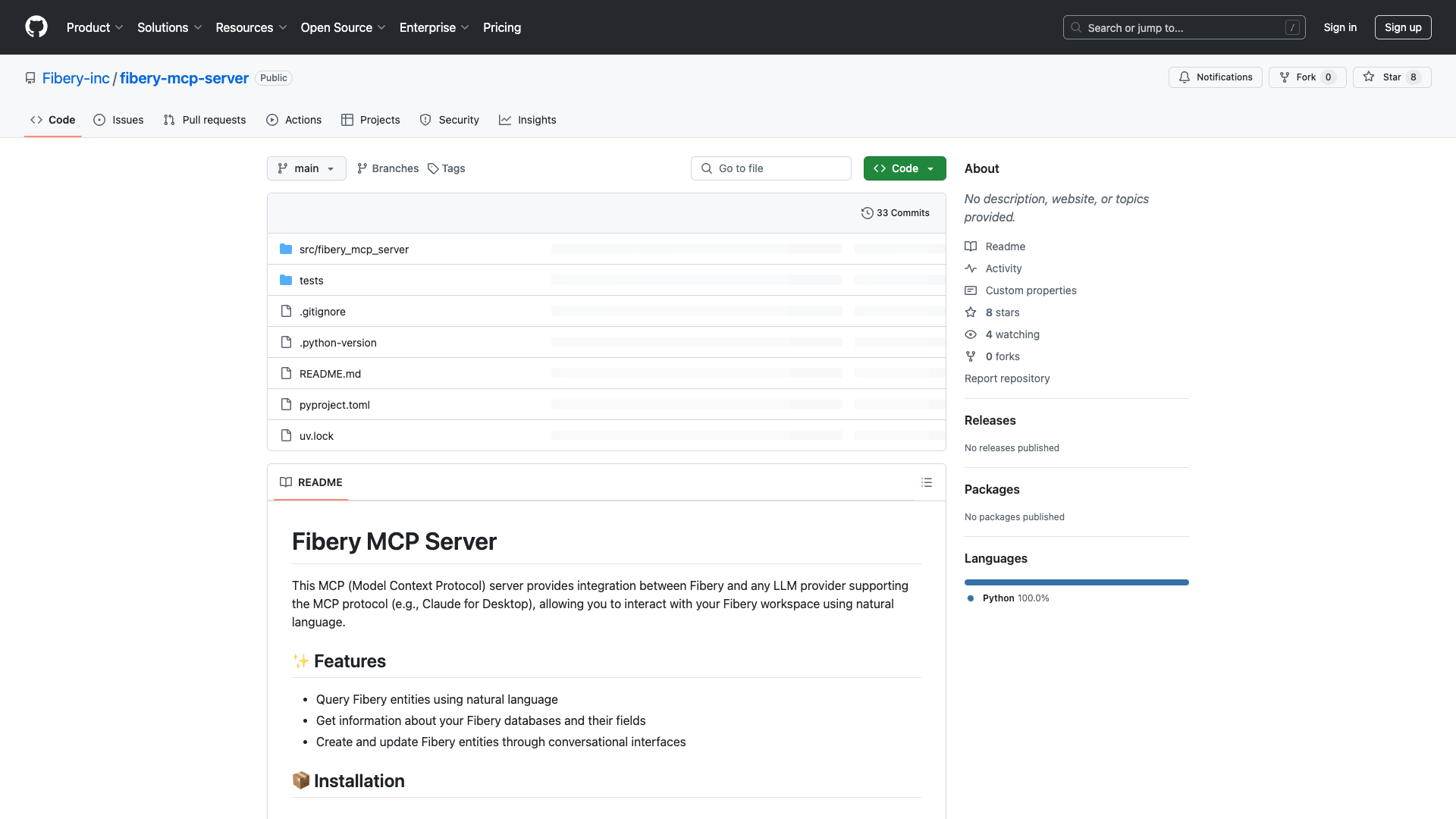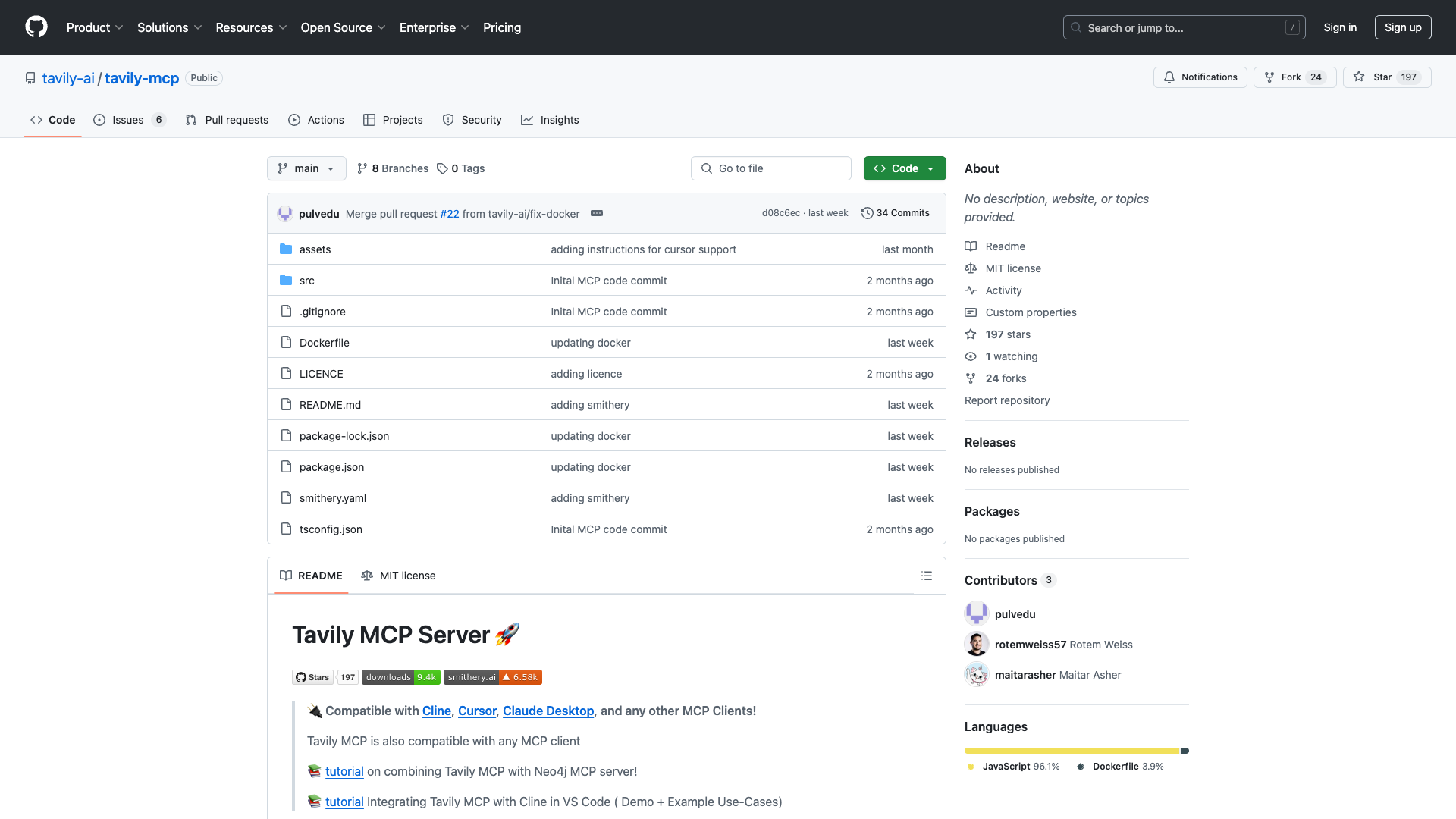Overview
The Chroma MCP Server is an innovative open-source implementation of the Model Context Protocol (MCP), developed by the Chroma core team. This server acts as a robust backend solution aimed at enhancing applications that utilize large language models (LLMs). By providing seamless access to contextual data through advanced database functionalities, it caters to developers and researchers looking to integrate sophisticated memory management into their LLM applications.
Key Features
- Robust Data Management: The core functionality of the Chroma MCP server allows for effective management of collections of generated data alongside user inputs, ensuring efficient data retrieval and manipulation.
- Advanced Search Functionalities: Users can leverage powerful search capabilities including vector searches, full-text searches, and metadata filtering to retrieve contextually relevant information in real-time.
- Flexible Client Configurations: The server supports multiple client types:
- Ephemeral Clients: For quick testing without persistent storage.
- Persistent Clients: For long-term storage solutions.
- HTTP Clients: To connect with self-hosted instances of Chroma.
- Cloud Clients: For automatic integration with Chroma Cloud services.
- Easy Setup: Configuration is straightforward, utilizing JSON files or environment variables, making it accessible even for those less familiar with technical setups.
- Community Support: A thriving community fosters collaboration and shared knowledge, enhancing the user experience through collective troubleshooting and resource sharing.
User Experience
From the perspective of a software developer and AI researcher, the Chroma MCP server resonates well with professional needs. Its core functionality stands out, particularly the seamless integration of contextual data management into LLM applications. The advanced database capabilities enable efficient data retrieval through multiple search functionalities, which is essential for high-performance applications that depend on context-aware responses from LLMs.
The flexibility offered by various client configurations is a significant advantage. For instance, the ephemeral clients are perfect for rapid prototyping, while persistent clients provide reliability for more complex applications. This adaptability aligns well with the need for efficiency and autonomy in workflow processes.
The straightforward setup process, facilitated by JSON configuration files or environment variables, is commendable. This feature ensures that even those less familiar with intricate technical setups can get started quickly, reflecting an understanding of the audience's needs.
Areas for Improvement
While the Chroma MCP server excels in many areas, there are potential drawbacks worth noting. The document operations feature allows users to add documents with optional metadata effectively, but the interface could benefit from being more intuitive. Additionally, more comprehensive documentation with practical use case examples would enhance usability significantly.
Furthermore, in a landscape where productivity tools increasingly strive for automation, future iterations of the server could include built-in templates or pre-configured settings tailored to common use scenarios. This would reduce the reliance on manual configuration adjustments for new projects.
Conclusion
In conclusion, the Chroma MCP server stands out as a versatile tool that significantly enhances how LLM applications interact with databases. It offers flexible client configurations and extensive document handling features aimed at optimizing performance in retrieving contextually relevant information efficiently. Despite minor shortcomings related to usability enhancements and documentation support, it serves as an invaluable resource for developers seeking cutting-edge solutions in artificial intelligence contexts today. The commitment of Chroma Core to open-source solutions further solidifies the server's credibility and potential for future growth.
Open Link


